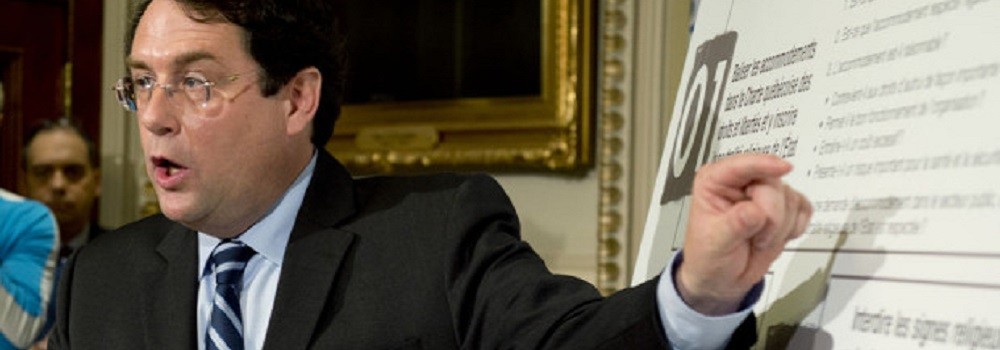Quebec Values Charter Goes Against Charter Values
Impact on employment sparks constitutional inquiry
By Michael Capitano, Staff Writer
The past week has been a riley one in Quebec. With the initial shock of the Part Quebecois’s Values Charter proposals settling in, the polls (courtesy of Léger Marketing) show a distinctive split, with 43 per cent approval and 42 per cent opposed in Quebec. Predictably, Francophones were more in favour of the proposal than Anglophones or Allophones. The rest of Canada seems none too pleased; the three major federal political parties have all spoken out against it.
Multicultural Minster Jason Kenney, speaking on behalf of the Federal Government, says the proposals would result in an “almost Monty Python-esque absurdity” and that he doesn’t “think the majority of Quebecers will support that kind of overbearing application of the power of the state.”
However, according to Bernard Drainville, the Quebec minister who introduced the proposals, in a statement to Reuters, “The vast majority of our followers agree with what we’re putting forward, although obviously this isn’t unanimous.”
Among those to be affected by the new proposals if implemented, there are concerns Quebec is heading down the same path as France, which banned religious symbols in schools in 2004 and the wearing of full-face veils in public in 2011. Protesters marched through Montreal’s streets last Saturday, in an inclusive, multicultural event against “politics of division.”
It’s time to take stock of the actual implications of the proposals, instead of framing it as a Quebec versus Canada issue. Quebec seeks to amend its Charter of Human Rights and Freedoms to constitutionalize the neutrality of the state and the secular nature of public institutions. On the ground, this results in the banning of any conspicuous or ostentatious religious symbols or dress. It applies to all institutions managed by the government, from judicial and ministry personnel to school systems to public health workers. The broad ranging employment consequences are clear: those who do not want to compromise their religious practices will be in effect barred from working in the public sector.
A survey of distinguished lawyers across Canada commented on the constitutionality of the new proposals. There was resounding opposition across the board. While both the Canadian and Quebec Charters have clauses that allow reasonable limits on protected rights and freedoms, those limits must be demonstrably justified. The Charters protect not the dogmas of any religion, but the conscience and subjective beliefs of believers. Forcing a choice between conscience and employment infringes religious practice and causes a discriminatory effect.
It is not clear whether Quebec can successfully justify ensuring state neutrality in relation to religious views as a pressing and substantial objective that is rational only minimally impairs those affected, as would be required in a constitutional challenge.
Michael Capitano is a second year law student at Osgoode Hall Law School. He is an aspiring novelist and essayist. He enjoys spending most of his time reading, writing, and playing video games.
LinkedIn: www.linkedin.com/pub/michael-capitano/75/158/662
Blog: http://tokalonlit.wordpress.com/category/blog/
Sources:
Canada.com
The Globe and Mail
Montreal Gazette
Yahoo: Is the rest of Canada hypercritical about Quebec’s charter values?
Yahoo: Thousands March Through Montreal to Protest Quebec Values Charter
Yahoo: Quebec Seperatists Play to Core Voters with Headscarf, Turban Ban






























Share the post "Quebec Values Charter Goes Against Charter Values"